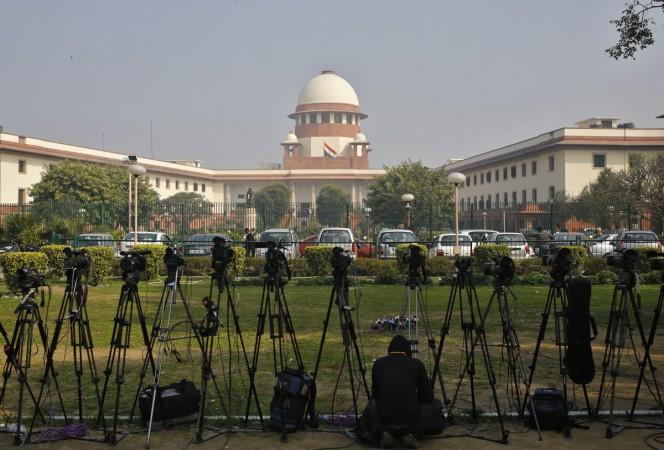
The Supreme Court on Wednesday quashed a December 2015 order by Arunachal Pradesh Governor Jyoti Prasad Rajkhowa, who had used his discretionary powers to dismiss the then Nabam Tuki-led Congress government after several Congress MLAs in the state rebelled and joined the BJP.
With this, Justice JS Khehar, who was hearing the case, also reinstated the dismissed Congress government in the state.
Meanwhile, Congress leader Kapil Sibal has demanded that Rajkhowa should resign.
The move is expected to be a political setback of sorts for the BJP, which had given calls for a "Congress-mukt Bharat" (a Congress-free India).
With the quashing of the governor's orders, the state legislature will return to the status quo as of Dec. 15 last year, even as the apex court held that any and all decisions taken by Rajkhowa after Dec. 9, 2015 are "unsustainable." These include the order to hold an advance Assembly session outside the Assembly premises on Dec. 16.
Following the apex court order, Tuki said on Twitter: "Finally we have got justice from SC,Court has today saved this country & its Constitution. #ArunachalPradesh @INCIndia @yuvadesh @OfficeOfRG [sic]" Congress Vice-President Rahul Gandhi, in his first tweet since Eid on July 7, said: "Thank you Supreme Court for explaining to the Prime Minister what democracy is. #ArunachalPradesh [sic]"
Delhi Chief Minister and Aam Aadmi Party convenor Arvind Kejriwal did not let this chance to take on Modi go a-begging. He said: "Modi has faith in neither the Constitution nor the people's mandate. He wants to run this country with dictatorial attitude."
Kejriwal went on to add that this was the apex court's second "slap" for Modi, the first being in Congress-ruled Uttarakhand, where the Supreme Court had revoked the President's Rule imposed by the Central government following a similar rebellion among Congress MLAs.

















